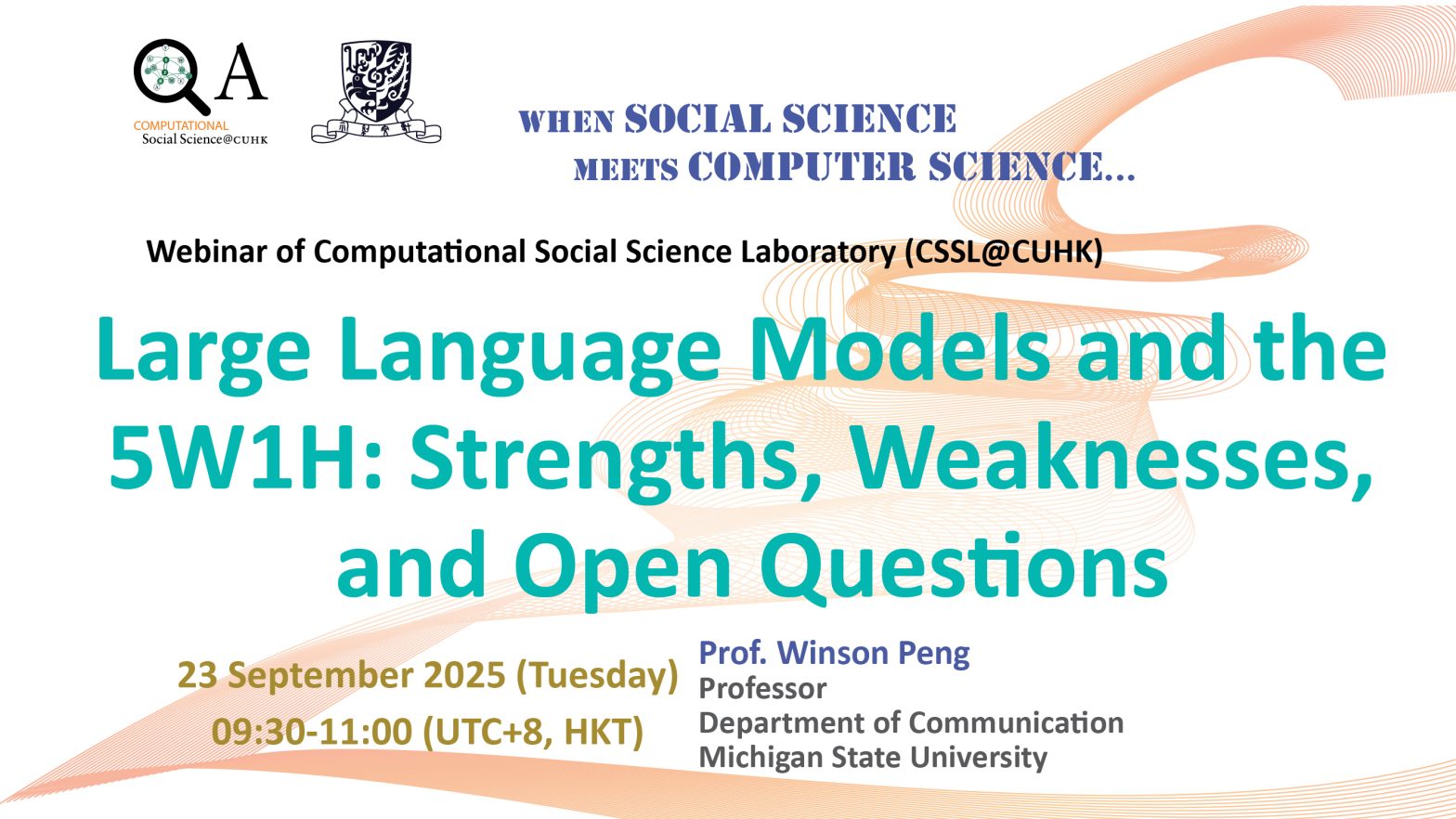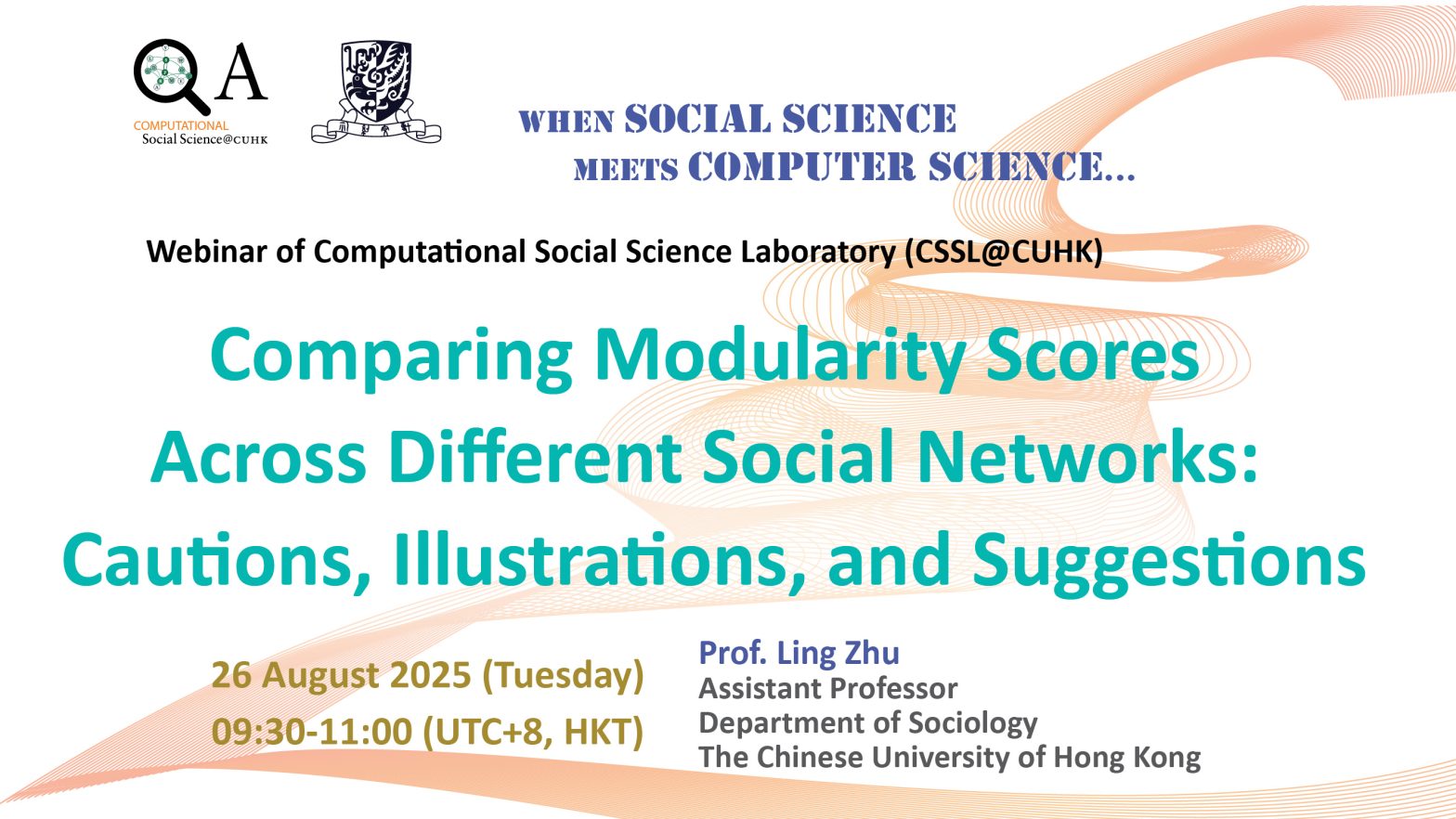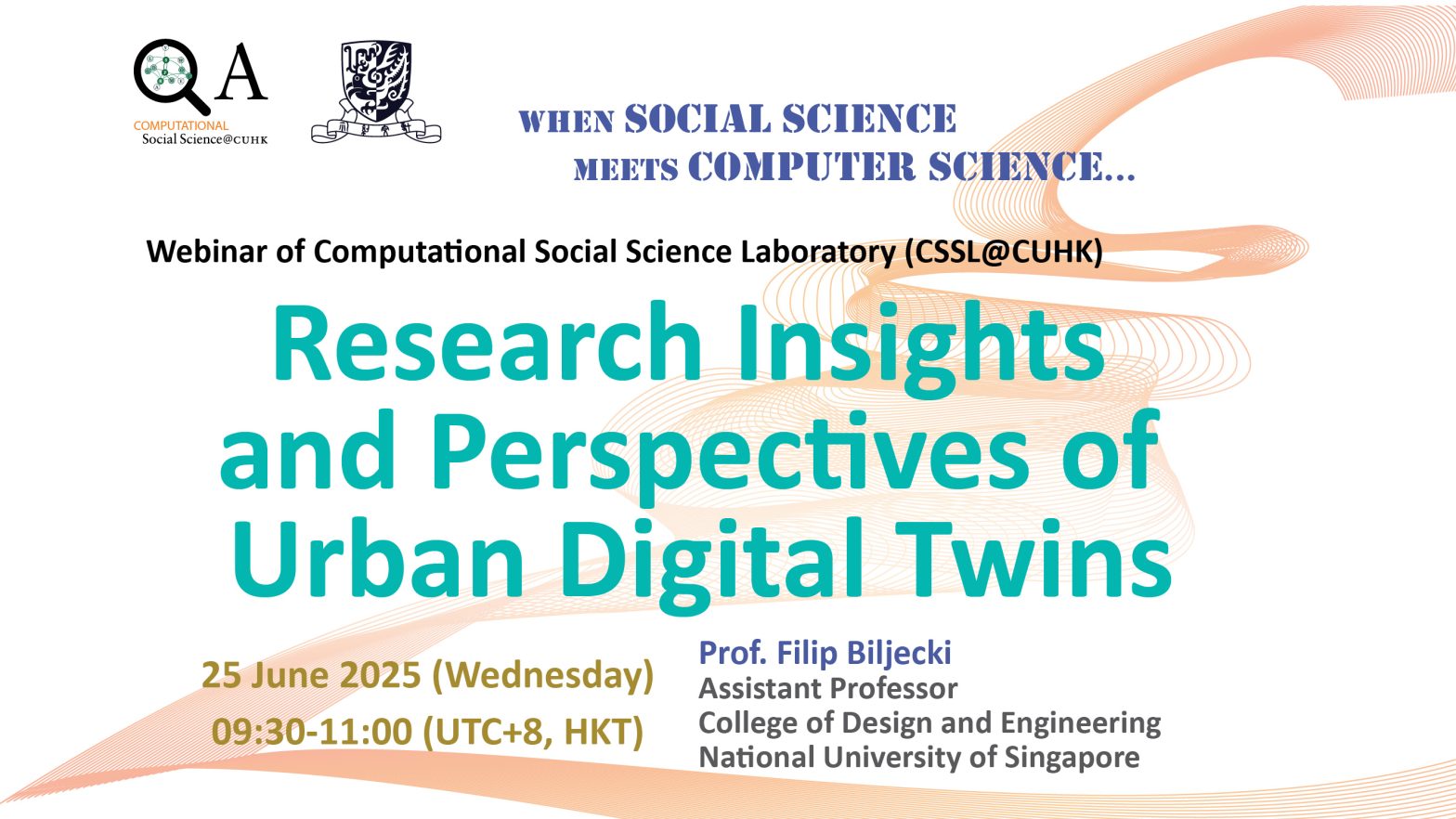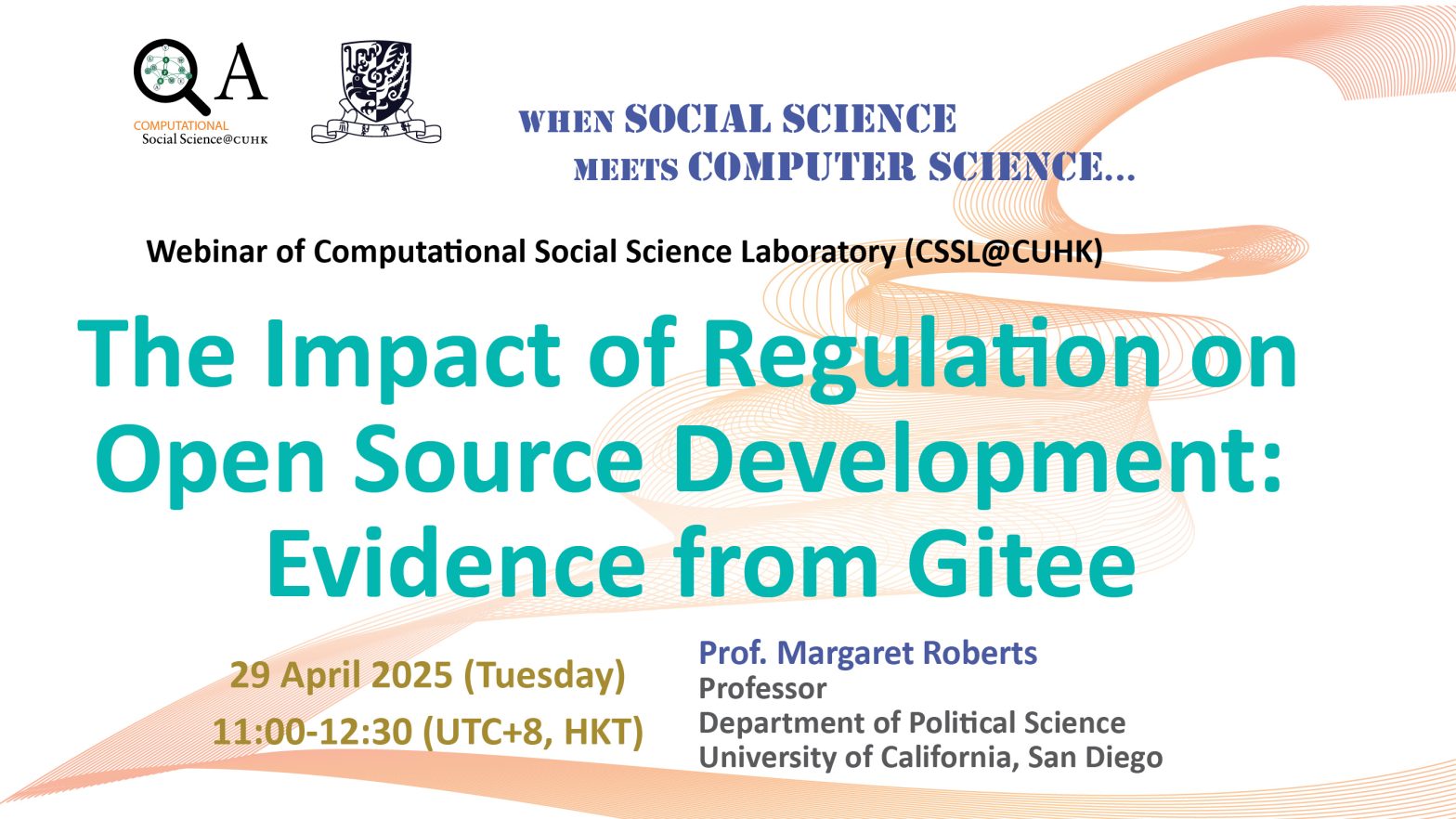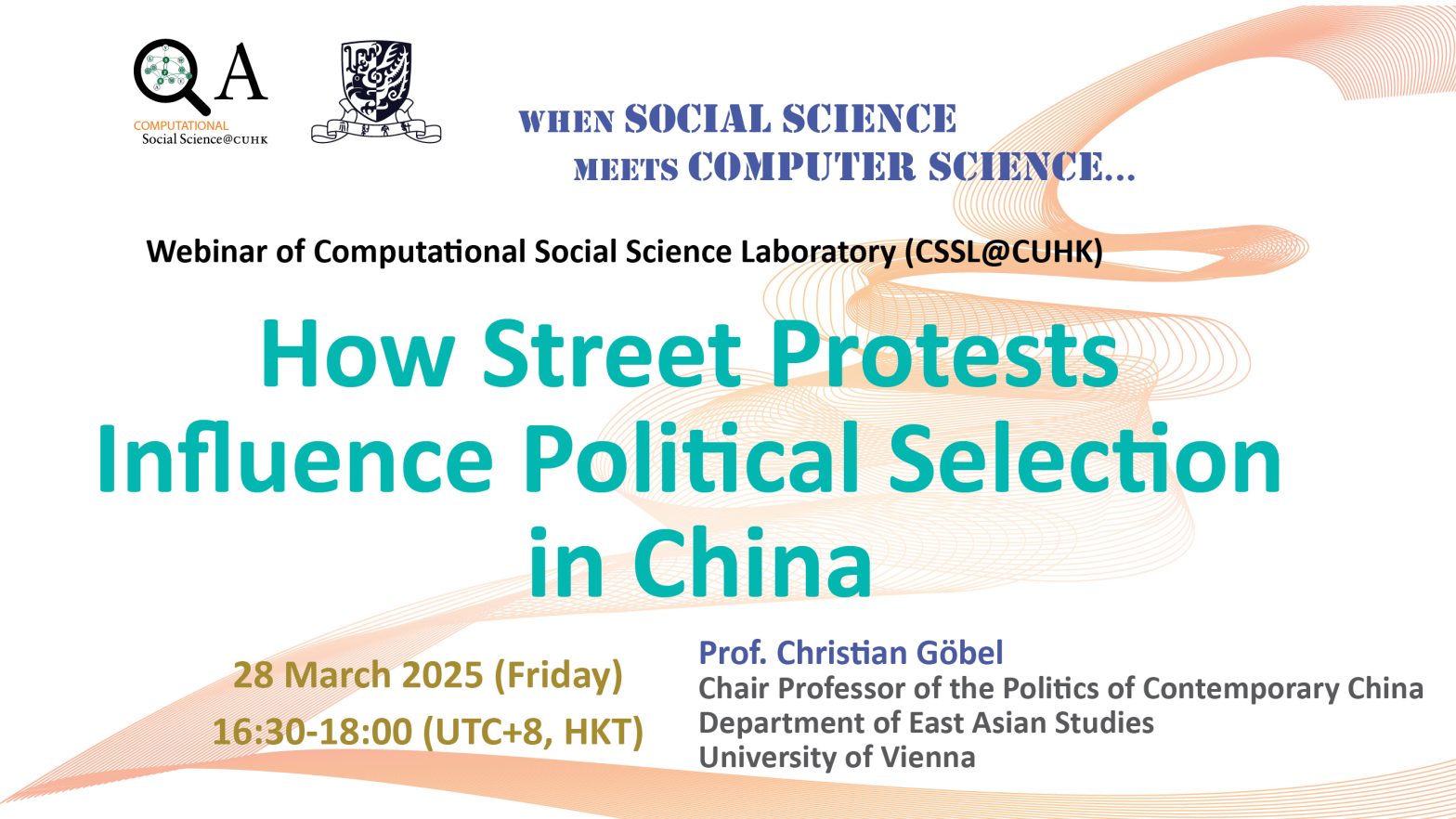Abstract: This paper introduces the concept of the silicon gaze to explain how large language models (LLMs) reproduce and amplify long-standing spatial inequalities. Drawing on a 20.3-million-query audit of ChatGPT, we map systematic biases in the model’s representations of countries, states, cities and neighbourhoods. From these empirics, we argue that bias is not a correctable… Continue reading The Silicon Gaze: A Typology of Biases and Inequality in LLMs Through the Lens of Place
Category: Monthly Webinars
Digital Twins for Social Science Research?
Abstract: “Digital twins” is becoming a paradigm for research and applications in various disciplines. To avoid jumping on the bandwagon without a thorough understanding of what it means and what it takes to address the genuine needs in our investigations, this seminar targets the nature and necessity of developing digital twins for social science research.… Continue reading Digital Twins for Social Science Research?
Factorial Difference-in-Differences
Abstract: We formulate factorial difference-in-differences (FDID) as a research design that extends the canonical difference-in-differences (DID) to settings without clean controls. Such situations often arise when researchers exploit cross-sectional variation in a baseline factor and temporal variation in an event affecting all units. In these applications, the exact estimand is often unspecified and justification for… Continue reading Factorial Difference-in-Differences
Spatial Data Mining to Understand Neighbor Problems and Neighborhood Change
Abstract: Large-scale administrative data collected by municipal governments are increasingly used by researchers to examine urban social phenomena and processes. This seminar will demonstrate how council data from Brisbane, Australia, were utilized to investigate the prevalence of neighbor problems through a GIS-based spatial approach. I will explore how the changing process of our cities such… Continue reading Spatial Data Mining to Understand Neighbor Problems and Neighborhood Change
Luck and Success in Millions of Life Courses
Abstract: This talk probes the role of luck in the determination of success in the life course. We ask whether when people get lucky the trajectory of their life success increasingly diverges from that of their unlucky counterpart. We study this question theoretically using basic models of positive feedback. Empirically we look at the lives… Continue reading Luck and Success in Millions of Life Courses
Large Language Models and the 5W1H: Strengths, Weaknesses, and Open Questions
Abstract: Large language models (LLMs) are increasingly employed in social science research as tools for analyzing text, generating insights, and assisting with theory development. Yet their contributions remain uneven, with strengths in some domains and significant limitations in others. This talk evaluates LLMs’ potential and constraints through the classic “5W1H” framework: What, Who, Whom, Where,… Continue reading Large Language Models and the 5W1H: Strengths, Weaknesses, and Open Questions
Comparing Modularity Scores Across Different Social Networks: Cautions, Illustrations, and Suggestions
Abstract: In the thriving field of network studies, there has been a recently emerging practice of comparing the optimal modularity scores across different social networks to evaluate the variation of network-module-related substantive concepts, such as the levels of consensus, polarization, or community boundary rigidity. Although the rationale for this practice is comprehensible, we caution that it suffers… Continue reading Comparing Modularity Scores Across Different Social Networks: Cautions, Illustrations, and Suggestions
Research Insights and Perspectives of Urban Digital Twins
Abstract: The talk will present recent research efforts on urban and geospatial modelling at the NUS Urban Analytics Lab, in particular focusing on urban digital twins. The Lab spearheads a holistic and intertwined research agenda that covers the entire geospatial process in the urban sphere: from advancing means to acquire data and assess its quality… Continue reading Research Insights and Perspectives of Urban Digital Twins
The Impact of Regulation on Open Source Development: Evidence from Gitee
Abstract: Open-source software transcends national boundaries, enabling collaboration among developers in universities, companies, and governments worldwide and contributes significantly to global economic activity. However, governments are increasingly exerting regulatory control over this global public good. In this paper, we examine the impact of one of these efforts – censorship on Gitee, a China-based code collaboration… Continue reading The Impact of Regulation on Open Source Development: Evidence from Gitee
How Street Protests Influence Political Selection in China
Abstract: How does recurring social unrest influence political selection within China’s authoritarian regime? While past research has highlighted the role of loyalty and economic performance in career advancement, the influence of social unrest remains largely unexplored. Drawing on two original datasets of 130,279 protest events and 55,069 career trajectory records of prefectural leaders from 2012… Continue reading How Street Protests Influence Political Selection in China






